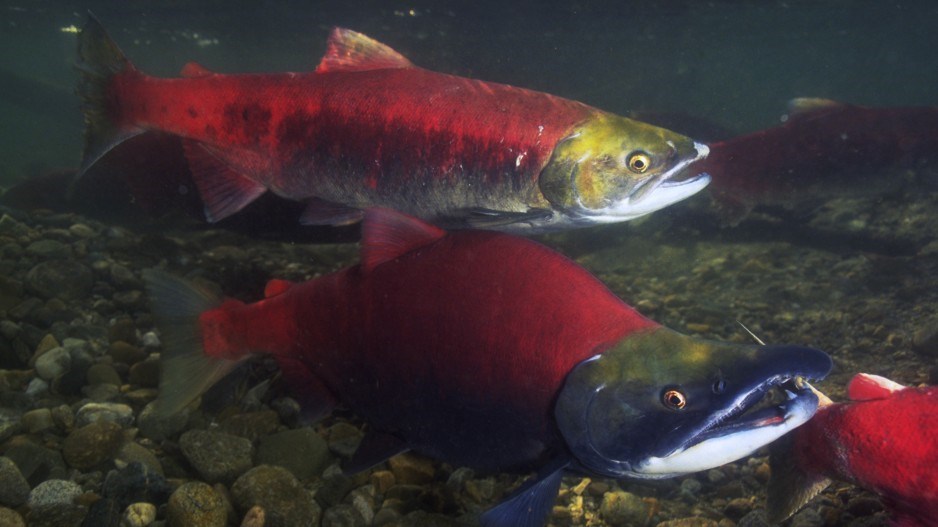Disagreement is brewing between First Nations groups across the Canada-U.S. border in the Okanagan over collaboration on sockeye salmon restoration projects and other land claims.
The Okanagan Nation Alliance Fisheries is concerned that progress made in recent years to bring sockeye salmon back to the Okanagan River may be in jeopardy due to funding decisions south of the border.
According to an ONA press release issued this week, they feel that a choice by the Confederated Tribes of the Confederated Tribes of the Colville Reservation — located in Washington state — left them in the lurch.
Funding from the Colville tribes for the joint projects of around $400,000 CA annually that had historically been granted to the ONA salmon efforts was cancelled this summer. The ONA calls that "short-sighted."
“This last-minute cancellation has left our project staff scrambling, and delayed projects [and threatened jobs],” said Chief Robert Louie of the Westbank First Nation, a Syilx Okanagan Nation community.
“The salmon are too important to play politics with, and we will take care of them, but it’s important to note this cancellation was very disruptive and sharply at odds with Chairman Jarred Erickson’s recent media comments that his tribes want to ‘live in unity and partnership’ with our Nation.”
The Syilx Okanagan Nation accused Colville of pursuing a "unilateral agenda of reaching across the border into Canada, demanding and acting to gain involvement over Syilx Okanagan Nation Territory. The Syilx Okanagan Nation has never attempted to do the same in the US and has in fact been prepared to meet and discuss issues, with an extended hand that remains open to Colville."
“In retrospect, the cancellation was not only an escalation of Colville’s move away from our Syilx Unity Declaration,” said Chief Louie, in the press release.
“But it also appears to be a direct play for full control of Upper Columbia fish passage, salmon reintroduction and research - work that we have successfully led in all parts of our Territory. Our partnership on salmon restoration was evidence of the success we achieve when we work together, as our people have done for thousands of years. Our door always has been, and always will remain open to working together again with our US relatives, as we have always had one language, one land, one culture and one people.”
Colville's chairman Jarred Erickson disagreed with some of the characterizations in the press release.
He claimed that while the $400,000 in funding is indeed not flowing north this year, that does not mean the tribes within Colville are not working salmon restoration work.
"The work continues to be done, just not through ONA. It's unfortunate that they didn't budget appropriately, I guess, to rely on the funding for positions, that's not my job to do for them," Erickson said.
"We all have our unique histories, and we know who we are as people. And it just is unfortunate it's become politicized. And I don't want to see that. I want to work together."
Another source of contention is land claims around the Arrow Lakes area of B.C. Erickson refers to it as the "Sinixt Confederacy," and the ONA claims it as part of the Eastern Territory of the Syilx Okanagan Nation.
The Sinixt people were erroneously declared extinct by the colonial Canadian government in the 20th century, a decision that was reversed in the highest courts in 2021 and allowed Sinixt people now settled in Washington State to have hunting and harvest rights in the B.C. area.
The ONA claims "the Syilx Okanagan Nation is the successor group for Sinixt descendants because many members of our communities are of Sinixt descent, the Sinixt have always been part of the Syilx Okanagan Nation, and we have continued to hunt, gather, travel and perform our ceremonies throughout our Territory including the Arrow Lakes region, to the present day."
Erickson said he is both Okanagan and Sinixt, and called it "disappointing" that what he perceives as politics have gotten involved.
The ONA press release emphasizes a dedication for caring for the land in collaboration.
Erickson agreed, adding he hopes "we can find a solution going forward."




